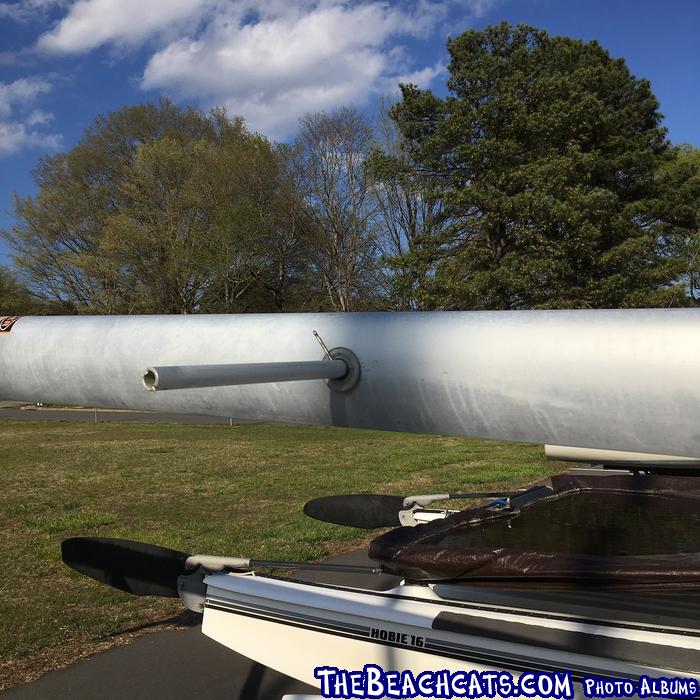So as part of my annual spring cleanup/upfit I decided to replace my diamond wires. My boat is a 1983 with a straight tube for a spreader. I have noticed that the tube/mast fit was generous and that water could certainly enter the mast at that point, but always assumed that the mast was sealed above and below the spreader to prevent the mast from filling up in the case of a capsize. I remove the spreader today and decided to check my assumption by sticking a piece of hose in the mast hoping to hit something indicating a plug. Well to my astonishment, there is no plug above or below the spreader!?!?!?!?!?
So, question is how to I seal the mast?

--
Hobie 16 (3 formerly)
MacGregor 25 (formerly)
Chrysler Dagger 14 (formerly)
NACRA 5.0 (currently)
High Point, NC
--